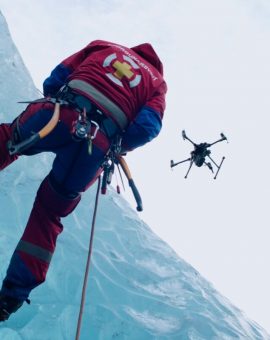The world of agriculture is evolving at an unprecedented rate, thanks to the integration of advanced technologies. Among these, drones stand out as a revolutionary tool, offering precision, efficiency, and new possibilities for farmers. At Drone Division, we are dedicated to harnessing the power of professional drone flying to transform agricultural practices, bringing innovation and sustainability to the forefront.
The Role of Drones in Modern Agriculture
Drones, or Unmanned Aerial Vehicles (UAVs), have become an invaluable asset in the agricultural sector. Their ability to provide real-time data and perform tasks with precision makes them ideal for a variety of applications. Here’s how professional drone flying is making a difference in agriculture:
1. Crop Monitoring and Health Assessment
One of the most significant applications of drones in agriculture is crop monitoring. Equipped with high-resolution cameras and multispectral sensors, drones can capture detailed images of crops, providing insights into their health. By analyzing these images, farmers can detect issues such as pest infestations, diseases, and nutrient deficiencies early on, enabling timely intervention and minimizing crop loss.
2. Precision Agriculture
Precision agriculture aims to optimize field-level management concerning crop farming. Drones play a crucial role in this approach by collecting data that helps in creating detailed maps of soil properties, moisture levels, and crop health. This data allows farmers to apply fertilizers, pesticides, and water more efficiently, reducing waste and increasing yields. The result is a more sustainable and cost-effective farming practice.
3. Soil and Field Analysis
Before planting, drones can perform detailed soil and field analysis. By capturing images and using sensors to measure soil conditions, drones help in identifying variations within a field. This information is crucial for deciding on the type of crops to plant and the best planting strategies. It also aids in planning irrigation and soil management practices that enhance crop growth and productivity.
4. Irrigation Management
Efficient water management is essential for successful farming. Drones equipped with thermal cameras can identify areas of a field that are over or under-watered. This precise information helps farmers optimize their irrigation systems, ensuring that crops receive the right amount of water, thus conserving this precious resource and improving crop health.
5. Planting and Seeding
Advanced drones can also assist in planting and seeding. By using specialized equipment, drones can plant seeds in precise locations, ensuring uniform distribution and optimal growth conditions. This method is particularly useful in difficult terrains where traditional planting methods are challenging and time-consuming.
6. Crop Spraying
Drones are increasingly being used for crop spraying, offering a more targeted and efficient method than traditional machinery. Equipped with sprayers, drones can cover large areas quickly and apply fertilizers, pesticides, and herbicides with high precision. This reduces the amount of chemicals used, minimizes environmental impact, and ensures better crop protection.
7. Livestock Monitoring
In addition to crop management, drones are also beneficial for livestock monitoring. They can track the movement and health of animals, identify sick or injured livestock, and monitor grazing patterns. This real-time data helps farmers manage their livestock more effectively, ensuring better health and productivity.
The Future of Agriculture with Drones
The adoption of drones in agriculture is set to increase as technology advances and becomes more accessible. At Drone Division, we are committed to staying at the cutting edge of this transformation. Our professional drone flying services are designed to provide farmers with the tools and insights they need to optimize their operations, reduce costs, and promote sustainability.
As we look to the future, the possibilities for drones in agriculture are vast. From automated planting and harvesting to real-time data analytics and AI-driven insights, drones will continue to revolutionize farming practices. At Drone Division, we are excited to be part of this journey, helping farmers harness the power of drones to achieve greater efficiency, productivity, and environmental stewardship.
